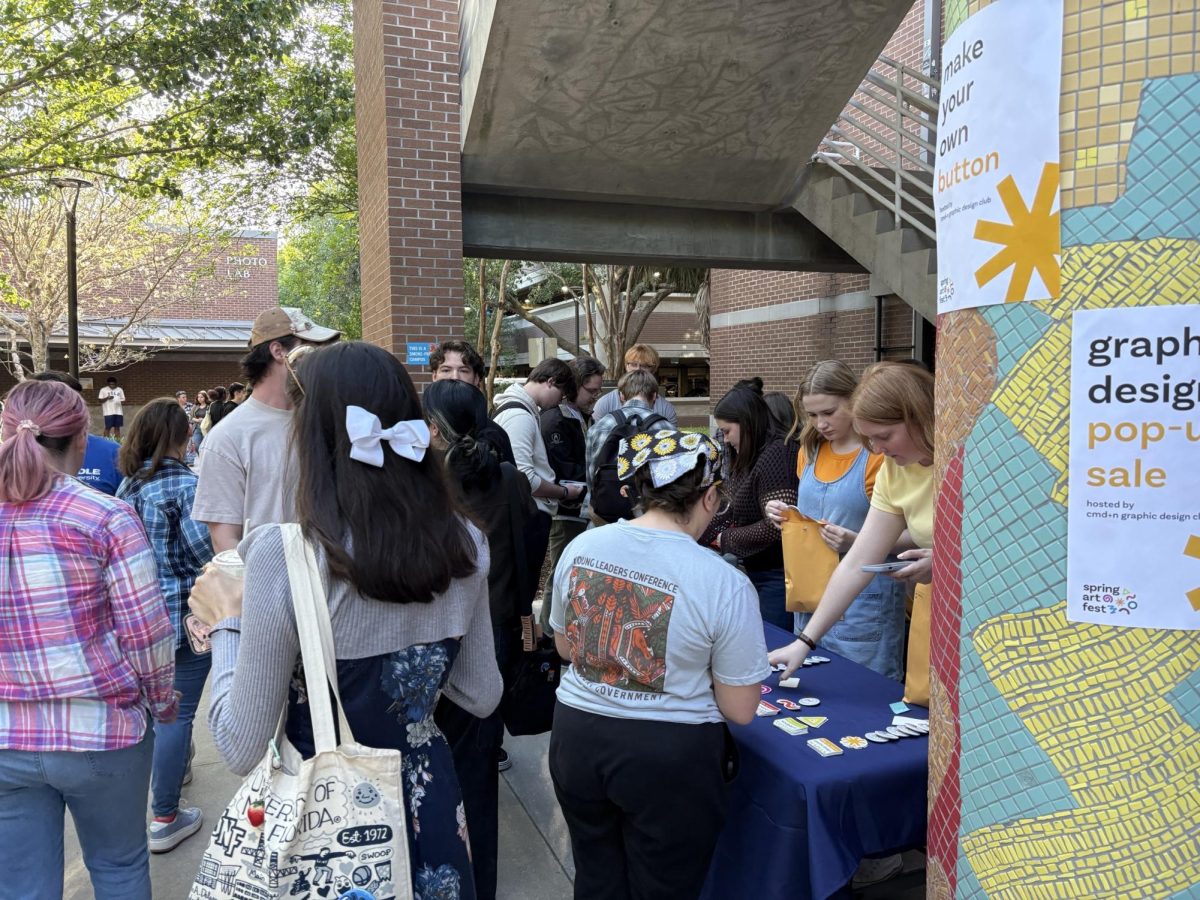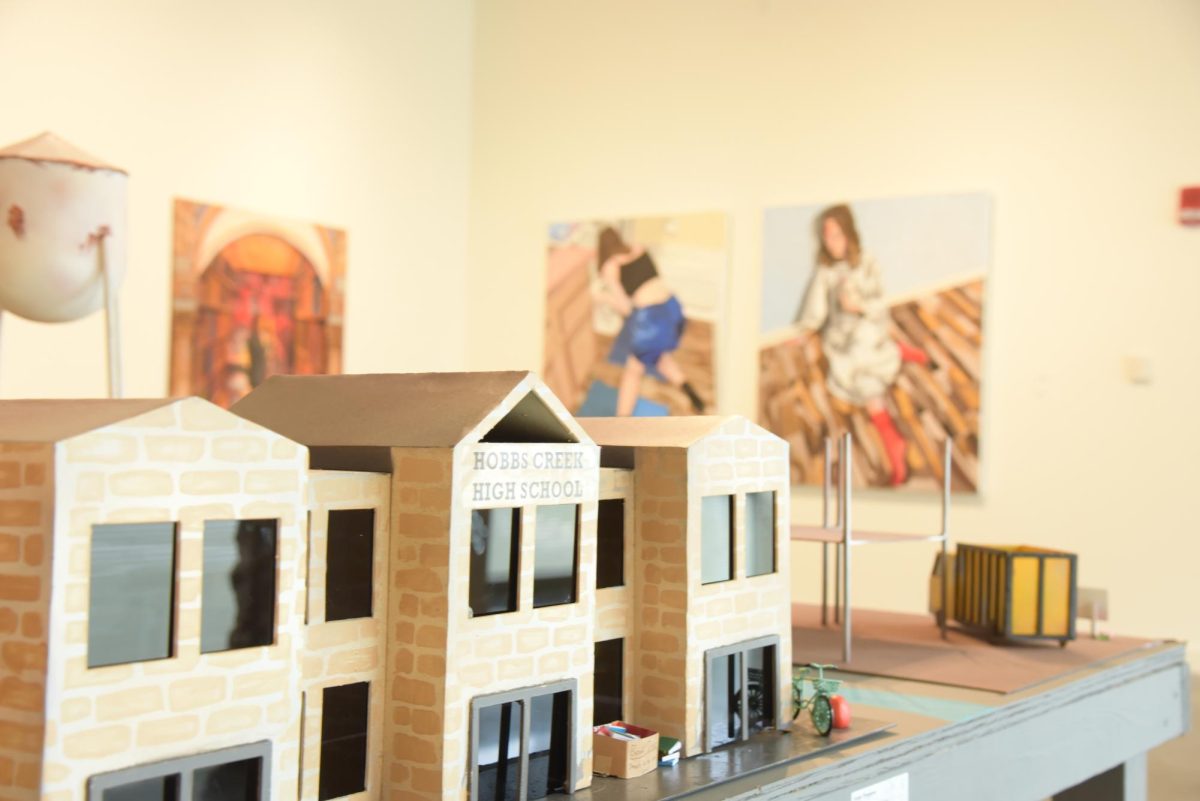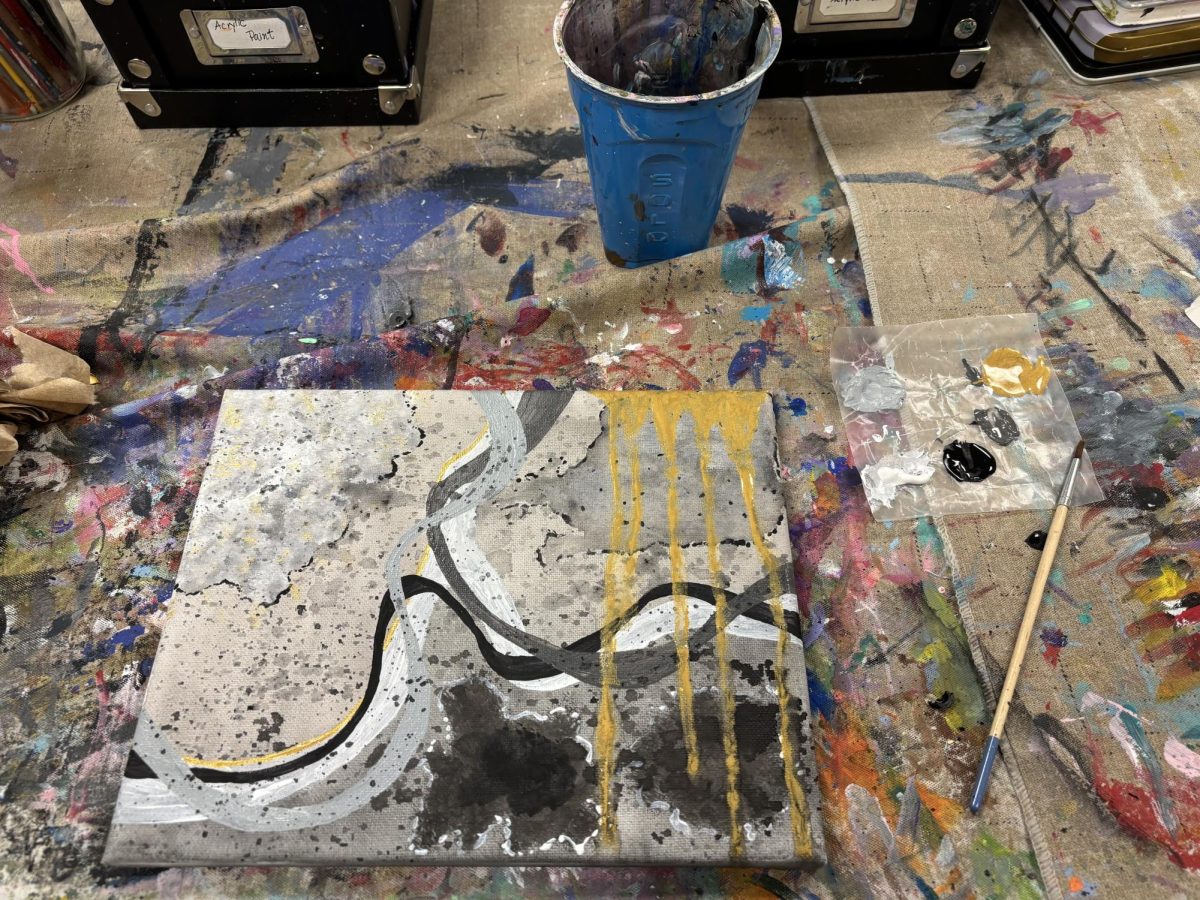
Tracey Tanner is a junior ceramics major at UNF and is originally from St. Petersburg. Through the loss of her mother and an interest in pottery, she has been motivated to pursue a degree in fine arts and become an art teacher one day. Tanner falls into peace when she’s at work on the pottery wheel, and any hardship of the day becomes her inspiration. In this interview, Tanner gives us a look into what it’s like to be a fine arts major. This story originally appeared in the Spring 2016 Spinnaker magazine.
Tiffany Salameh: How did you get involved in ceramic art?
Tracey Tanner: I took it in high school and I really liked it. I always knew I wanted to work with clay in someway, but I was really concerned about money. You know, how am I going to make money doing art? I was more focused on that in high school with the whole ‘How am I going to get out of parents house and pay my bills and make money?’ So I didn’t go to college for a long time and just worked in restaurants and stuff like that just trying to get out in the real world.

TS: What made you decide to study fine arts?
TT: When my mom got sick, I went back to school [at a community college] and was just doing general studies. I kind of thought that I wanted to do psychology and thought ‘Oh maybe I can tie in art therapy’ or something like that. But I didn’t actually take a ceramics elective class until one of my last semesters in community college. I was at a time in my life where I didn’t know what I was going to do and I needed someone to kind of put me on the right path and that [ceramics] teacher was like, ‘You need to go to school for ceramics,’ and she kind of pushed me in the right direction, which was exactly what I needed. She told me that they were making a wood kiln here at UNF and that I should really consider being a part of it.
TS: What do you enjoy most about ceramic art and making it?
TT: Probably the whole creative process from initially seeing something that inspires you, which I find in the weirdest places. A lot of times I’ll take a picture of something or I’ll sketch an idea I have in my head just to kind of get it out, then I’ll follow with that idea all the way through. But when it comes to throwing on a wheel, since that’s primarily what I do, I like to trim the bottom of holes and cups and handles on mugs. I love handles.
TS: You talked about ‘the creative process.’ what is your creative process?
TT: I guess that’s mostly just throwing on the wheel. So you start with a piece of clay and center it and I’ll have an idea in my head usually of what I want the clay to become. Sometimes I’ll sketch it out before or sometimes I’ll force myself to sit down even if I don’t know what I’m gonna make and say, ‘Let’s see what happens.’ But I do like to go in with a plan most of the time.
TS: Do you have a favorite piece?
TT: My favorite pieces are — oddly enough — are like mixed media ceramic and other things. I took sculpture last semester and we did the iron pour and I made an iron basket and filled it with all these ceramic little bottles. That was my favorite piece just because I think it was a different medium to work with.
TS: How would you describe your art community at UNF?

TT: There is definitely a family here. Painters can go home and paint, but when it comes to ceramics you really have to be in the studio if you wanna get work done. We all get to know each other very well and it’s kind of like my home and this is like my people. I’m very about the community aspect of it when we built the wood kiln I didn’t really realize that my teacher helped send me up here to be a part of this community. I feel really proud to be a part of it.
TS: Are you involved in any other art communities?
TT: In St. Pete, there is a place called the Marine Center for Clay which I’ve done some firing for them. Before we had a wood kiln here, we would go down and fire with them.
TS: What are your passions? Do you try to infuse them in your work?
TT: I’ve definitely passionate about functionality and people using things that I make. It’s kind of like your footprint in a way. I think a lot of my work is about the concept of home and just bringing people together. I kind of found this through losing my mom which is kind of a touchy subject, but a lot of the stuff I make is kind of with her in mind. I like to think that my pots are kind of quiet and humble and that anyone can have them in their cupboard. I want them to be accessible and used. I make things for people and about relationships. I want people to interact with my work and I’m really passionate about that.
TS: What are your plans after graduation?
TT: I do wanna teach. That’s the ultimate goal. My grandma was an art teacher and I think I really want to teach at the collegiate level for sure.
TS: What would you do if you weren’t doing this?
TT: I don’t really know. This is so silly but maybe I would be like a meteorologist? I like weather… but honestly I feel like I would be really not a happy person if I was doing anything else. I would hope that I would still be hope to be involved in some kind of art though.
TS: How often are you in the studio?
TT: I have classes Monday–Thursday and since my ceramics classes are Monday and Wednesday I’m usually here from 9–6. But there’s some days where I will stay late and throw till 10 o’clock during the week. Most of the time during the week I don’t really get much done, weekends are my time to crank. So Friday I’ll come in and sometimes I’ll spend anywhere from 8 hours to 14 hours here.

TS: Do you come every weekend?
TT: I’m usually here all weekend — Friday, Saturday and Sunday. So I easily spend 30 hours over the weekend here. This craft is one of those things that needs practice to perfect. And if you don’t practice you won’t get better. In a way it’s kind of like riding a bike, a lot of it is muscle memory so if you’re not doing the same thing over and over you’ll lose it.
TS: How many hours a week do you think you spend in the studio?
TT: I’d say anywhere between 40 and 60 hours, maybe more.
TS: Do you think it’s important to study art? Why?
TT: I think that art is relatable and sometimes unsettling and I think that it makes people more compassionate individuals. It’s kind of cheesy how people say like pottery is so therapeutic, but it is. There’s something about making something and bringing art into the world that makes you feel good. So in that way, I think that it is really helpful to study art. I think it’s super important.
—
For more information or news tips, or if you see an error in this story or have any compliments or concerns, contact managingeditor@unfspinnaker.com.











